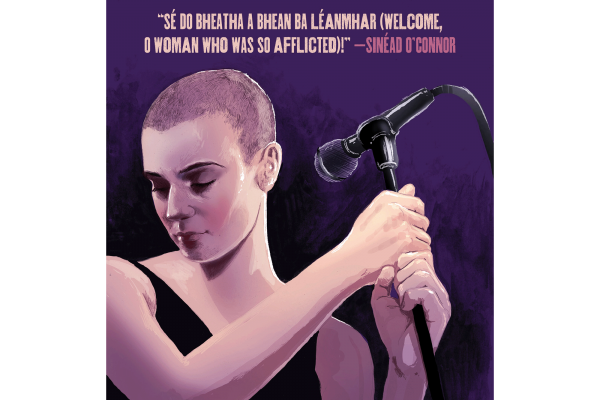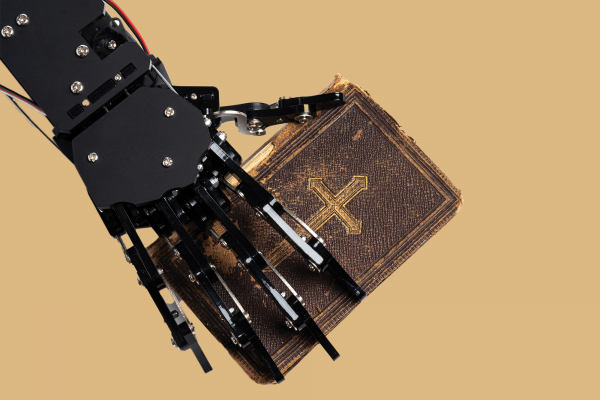Who gets to belong? This was the question Miles Morales asked himself in 2018’s Spider-Man: Into the Spider-Verse. The smash-hit film introduced superhero movies to the multiverse, the idea that multiple universes exist parallel to each other, marked by only minor differences between them.
Multiverse films have become a mainstay of mainstream blockbusters thanks to Spider-Man: No Way Home; Loki; Doctor Strange in the Multiverse of Madness; The Flash; Everything, Everywhere, All at Once; and more. In Into the Spider-Verse we saw Miles embrace how his unique identity empowers him to be Spider-Man. Now, in the second film of the series — Across the Spider-Verse — the very things that set Miles apart make him the target of gatekeeping. The new film explores the dangers of prioritizing systems above the people in those systems.
In the first Spider-Verse film, we find Miles (voiced by Shameik Moore), an Afro-Latino teen in the Brooklyn of Earth-1610 (one of the thousands of Earths across the multiverse, each with their own Spider-person). When Miles is bitten by a radioactive spider (from Earth-42), he develops powers like wall-crawling and super strength, but also unique powers like invisibility and an energy blast. Miles finds himself teaming up with Spider-persons who’ve all been pulled into his universe to stop an interdimensional catastrophe.
Across the Spider-Verse isn’t content to rest on the laurels of the previous film’s success (which include a bevy of “Best Animated Film” awards). It raises the stakes in nearly every conceivable way, from even more innovative animation to a slew of new Spider-persons to the stakes of Miles’ story.
Spoilers Follow
During a surprise visit from Gwen Stacy (Hailee Steinfeld), Miles discovers he’s been excluded from a team of Spider-people committed to preserving the stability of the multiverse by resolving anomalies that keep cropping up. Feeling major “fear-of-missing-out,” Miles follows Gwen to Earth-50101, home of Pavitr Prabhakar (Karan Soni), the Indian Spider-Man of Mumbattan (a combination of Mumbai and Manhattan). While there, Miles saves the father of Pavitr’s girlfriend.
Unfortunately, that man is a police captain, and it turns out that his death is part of “Spider-canon.” Miles, Gwen, and the other Spider-people are summoned to Nueva York of Earth-928 to answer to Miguel O’Hara (Oscar Isaac), Spider-Man 2099. Miguel explains that all those retellings of the Spider-story that have framed both films aren’t incidental. What makes a Spider-Person/Cat/Car/Dino a Spider-Man is their story. Certain beats remain constant across the Spider-Verse like the death of a beloved uncle (usually Ben, but Aaron in Miles’ case) and the death of a police captain close to Spider-Man. In Miles’ case, the ill-fated captain might just be his own father.
Miguel insists that, by saving Pavitr’s police captain, Miles has disrupted the canon, which put the whole of dimension-50101 in danger. Miles can’t believe that so many Spider-people are willing to stand back and let people die, to sacrifice the few for the sake of the many. He insists, “We can save both!”
Miguel and those who follow him have put the integrity of the canon above the lives of the individuals within the canon. What is the canon, after all, but a story we have agreed to tell together? How much variation can the canon withstand and still be the canon? Not all Spider-people have to be named Peter. Or be male. Or be human. Why can’t some have an uncle who lives? Or save a police captain?
Christians know a thing or two about being precious about a canon. The word has long referred to the collection of books we call the Bible. Most Protestants have 66 books between the Hebrew Bible and the New Testament, while Catholic and Orthodox believers include the Deuterocanonical books (also called the Apocrypha). The word itself comes from a stick used to measure. We refer to the Bible as canon because we hold it to be an authoritative measure of faithfulness to God. Christians throughout history have justified violence against others in the name of defending this canon — both the literal books and the more nebulous idea of their authority, from John Calvin’s support for capital punishment against heretics to contemporary opponents of LGBTQ+ rights.
In Unclean: Meditations on Purity, Hospitality, and Mortality, psychologist Richard Beck argues that Jesus teaches us to prioritize people over canon. Beck builds his thesis around some Pharisees’ criticism of Jesus sharing a meal with “tax collectors and sinners” in Matthew 9. He observes that “the Pharisees were not making a logical error … They were living within a coherent moral and social paradigm. Unfortunately, that paradigm was producing noxious social and moral outcomes.” These Pharisees excluded sinners to maintain a standard of holiness consistent with their interpretation of the canon of scripture. Jesus’ act of eating with the excluded criticized the Pharisees’ faithfulness to God.
In the movie, we see Miguel insist that the wholeness (holiness?) of the canon is worth the sacrifice of the few. When Miles refuses to back down, when he tries to inspire the Spider-people to be better than the story they’ve inherited, Miguel demonizes Miles. He points out that the spider that bit Miles wasn’t from his universe, that Miles was never supposed to be a Spider-Man. We can hear in O’Hara’s condemnation the cries of moviegoers who insisted Spider-Man couldn’t be Black (every other cinematic portrayal of Spider-Man has cast a white man). Miles doesn’t fit. He’s not a “real” Spider-Man. Miles, just by existing, defies the canon.
But Beck reminds us that Jesus uses canon to critique canon. To the Pharisees, Jesus quotes the prophet Hosea, who says God desires, “mercy, not sacrifice” (Matthew 9:13). Jesus insists that any canon that demonizes and excludes is a false canon. Any canon that relies on the exclusion of some for the good of most is evil.
Movie-lovers will have to wait until next year, when we follow Miles in Spider-Man: Beyond the Spider-Verse, to learn if he can find a better way, build a Spider-Verse that doesn’t sacrifice uncles and captains in the name of heroism.
For now, we can hope. While we wait, Christians can do the hard work of imagining for ourselves a better canon, one that doesn’t exclude anyone from the church — not queer people or the poor or immigrants — in the name of holiness. We can join Jesus in celebrating a canon that doesn’t demonize some for the good of the many but rather creates space for everyone.
Got something to say about what you're reading? We value your feedback!








